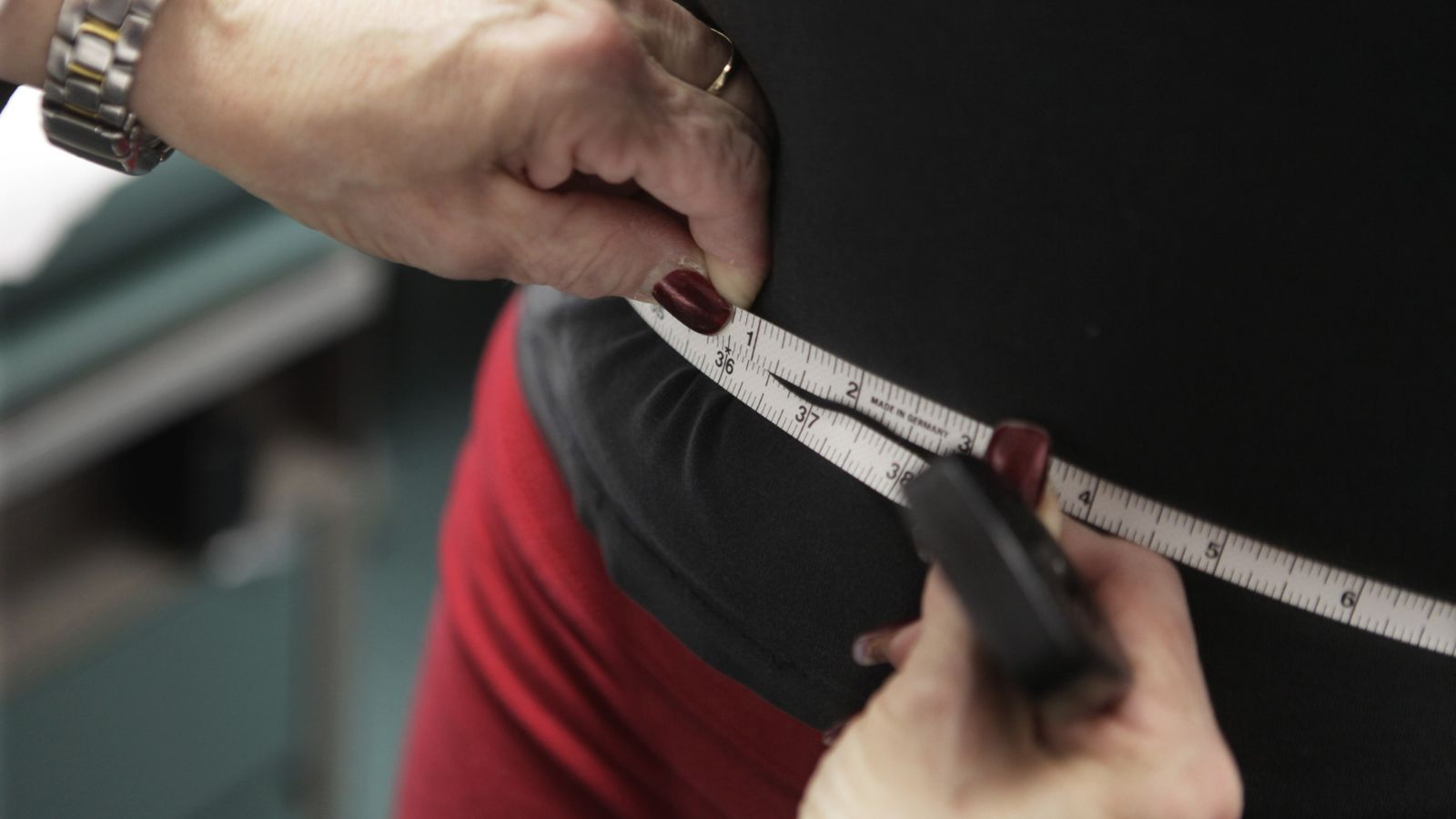Excess weight almost doubles a woman’s risk of developing womb cancer, a new study has found.
For every five extra body mass index (BMI) units – the equivalent of a 5ft 5in woman being two stone heavier – the risk of cancer is increased by 88%, according to the Cancer Research UK-funded study.
Analysing genetic samples from 120,000 women in Australia, Belgium, Germany, Poland, Sweden, the UK and the USA, it found around 13,000 had endometrial cancer.
Researchers discovered two hormones – fasting insulin and testosterone – increased the likelihood of being diagnosed with the condition by looking at the markers of 14 traits that could link obesity and womb cancer.
By identifying precisely how hormones could increase the risk, scientists could now use drugs to regulate levels of those hormones in people who are already in greater danger of developing cancer.
The most recent Health Survey for England estimated 28% of adults were obese and 36% were overweight.
Lead author of the paper, Emma Hazelwood, said: “This study is an interesting first step into how genetic analyses could be used to uncover exactly how obesity causes cancer, and what can be done to tackle it.
More than third of cancer patients in England, Wales and Scotland diagnosed in A&E, study shows
Louis van Gaal: Former Manchester United coach reveals he has prostate cancer
‘Long-term decline’ in critical cancer care as ‘exhausted’ NHS workers battle staff shortages
“Links between obesity and womb cancer are well-known but this is one of the largest studies which has looked into exactly why that is on a molecular level.
“We look forward to further research exploring how we can now use this information to help reduce the risk of cancer in people struggling with obesity.”
After smoking, being overweight or obese is the second-highest preventable cause of cancer in the UK with more than one in 20 cases estimated to be a result of this.
Womb cancer, which affects one in 36 UK women in their lifetime, is especially closely linked with obesity, which causes around a third of cases.
Dr Julie Sharp, head of health information at Cancer Research UK said: “Studies like this bolster the fact that being overweight or obese is the second biggest cause of cancer in the UK and can help us start to pinpoint why.
“This will play a pivotal role in uncovering how to prevent and treat cancer in the future”.
A BMI of 18 to 25 is considered a healthy weight, 25 to 30 is overweight, and over 30 is obese.
The peer-reviewed study from the University of Bristol was published in BMC Medicine.






















